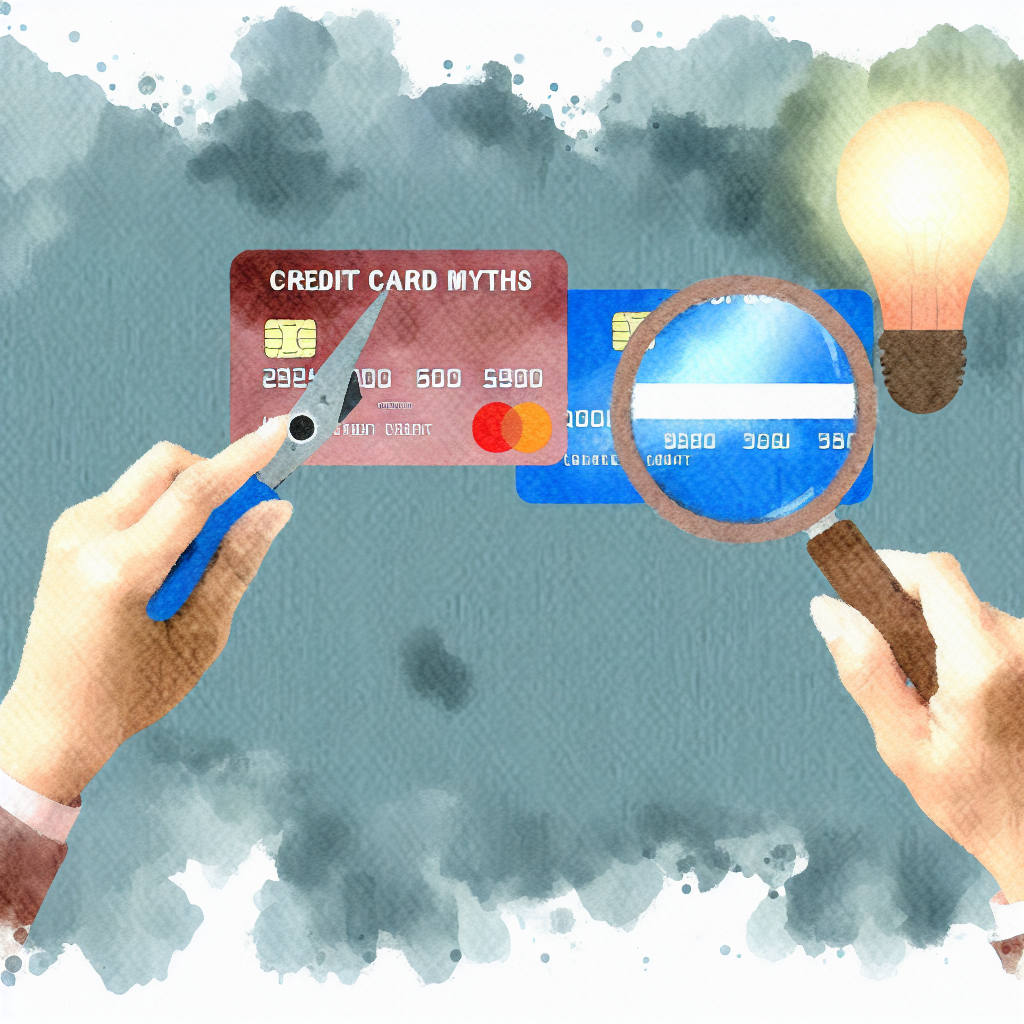Introduction to Credit Scores: Basics and Importance
Credit scores play a crucial role in our financial lives, influencing everything from loan approvals to interest rates on mortgages. Understanding the components and significance of a credit score is essential for effective credit management. A credit score is a numerical representation of an individual’s creditworthiness, typically ranging from 300 to 850. The higher the score, the more creditworthy a person is deemed to be.
The importance of maintaining a good credit score cannot be overstated. Lenders use credit scores to gauge the risk associated with lending money to an individual. A high credit score can result in more favorable loan terms, lower interest rates, and even increased chances of credit card approvals. Conversely, a low credit score can restrict access to credit and lead to higher borrowing costs.
It’s important to note that several factors collectively determine your credit score. These include payment history, amounts owed, length of credit history, new credit, and types of credit used. Each of these factors carries different weightage, and even slight modifications in any category can impact your overall credit score. Therefore, maintaining a comprehensive understanding of these components is vital for effective credit management.
Effective credit management entails not only understanding the factors influencing your credit score but also knowing the potential consequences of certain actions, such as closing credit accounts. The decision to close a credit account should not be taken lightly, as it can have significant short-term and long-term impacts on your credit score.
What Happens When You Close a Credit Account
Closing a credit account may seem like a straightforward decision, but it involves multiple layers that could affect your credit score. When you close a credit account, its history doesn’t disappear from your credit report immediately. Instead, the closed account will remain on your credit report for several years, whether it was positive or negative.
However, closing a credit account can directly influence your credit utilization ratio, which is a key factor in your credit score. Credit utilization ratio refers to the amount of credit you’re using compared to your total available credit. Closing an account reduces your available credit, potentially increasing your credit utilization ratio if you have existing balances on other accounts.
Additionally, closing a credit account impacts the average age of your credit accounts. The age of your credit accounts contributes to 15% of your FICO score, one of the most commonly used credit scoring models. Closing an older account can lower the average age of your accounts, potentially lowering your credit score. Understanding these nuances can help you make more informed decisions about closing credit accounts.
Effects of Closing an Account on Credit Utilization Ratio
One of the immediate consequences of closing a credit account is its effect on your credit utilization ratio. Given that this ratio accounts for 30% of your FICO score, any changes can significantly impact your overall score. The credit utilization ratio is calculated by dividing your total outstanding balance by your total available credit limit.
For example:
| Outstanding Balances | Available Credit Limits | Credit Utilization Ratio |
|---|---|---|
| $5,000 | $20,000 | 25% |
| $5,000 | $10,000 (post-closure) | 50% |
As seen in the table, closing an account with a $10,000 limit doubles the credit utilization ratio from 25% to 50%. This spike can lower your credit score as credit scoring models favor a lower utilization ratio—ideally below 30%.
It’s essential to be aware of your credit utilization ratio before deciding to close an account. If you have significant balances on other cards, closing an account might not be a wise choice, as it could negatively impact your score. Consider paying down your balances first to maintain a favorable utilization ratio.
Impact on Average Age of Credit Accounts
Another critical aspect to consider when closing a credit account is its impact on the average age of your accounts. The length of your credit history constitutes 15% of your credit score. The longer your credit accounts have been open, the more positively they influence your score.
Here’s a scenario to consider:
| Account Name | Account Age | Status |
|---|---|---|
| Credit Card A | 10 years | Open |
| Credit Card B | 5 years | Open |
| Credit Card C | 2 years | Closed |
In the example, closing Credit Card C, which is younger, might seem harmless at first. However, if you eventually close Credit Card A, one of your older accounts, the average age of your accounts significantly reduces, which can lower your credit score.
Maintaining old accounts can be particularly beneficial, even if they are inactive. Older accounts showcase a longer and more stable credit history, which is favorable when assessing creditworthiness. Before closing an old credit account, weigh its potential impact on the average age of your credit portfolio.
Potential Changes in Credit Mix and Their Effects
Your credit mix, which refers to the variety of credit accounts you hold, is another component that contributes to your credit score. This factor makes up 10% of your FICO score. A diverse credit portfolio—comprising credit cards, mortgages, auto loans, and personal loans—can positively impact your score.
Closing a credit account can alter the mix of credit you’ll have on your credit report. For instance, if you only have one credit card and choose to close it, your credit report will lack revolving credit, which can potentially lower your credit score. Credit scoring models often reward consumers who show an ability to manage multiple types of credit responsibly.
Consider this scenario:
| Account Type | Number of Accounts | Impact Post-Closure |
|---|---|---|
| Credit Cards | 3 | 2 |
| Auto Loans | 1 | 1 |
| Mortgages | 1 | 1 |
The elimination of even one type of account can make your credit profile appear less diverse. Maintaining a healthy mix of accounts is thus crucial for keeping a balanced and positively impacted credit score. Always evaluate how closing an account will affect your overall credit mix.
Short-term vs. Long-term Impact on Credit Score
Closing a credit account can have differing impacts on your credit score, depending on the time frame under consideration. In the short term, the effects can be more pronounced due to immediate changes in your credit utilization ratio, average age of accounts, and credit mix.
Short-term effects often include:
- Increase in Credit Utilization Ratio: This happens almost immediately after an account is closed and can swiftly lower your score.
- Reduction in Average Age of Accounts: The impact is noticeable shortly after closing an account, especially if the account was one of your older ones.
- Changes in Credit Mix: Immediate changes can be seen as the variety in your credit accounts is affected.
In the long term, however, the impact can differ significantly:
- Account History Remains: Positive account history remains on your credit report for up to 10 years, offering a long-term benefit to your score.
- Adjusted Utilization Ratio: Over time, paying down balances and opening new accounts can restore your credit utilization ratio.
- New Credit Accounts: Opening new credit accounts can gradually increase your average account age and diversify your credit mix.
Understanding the short-term vs. long-term impacts can help in making a more comprehensive decision about closing a credit account. Planning and timing are essential to minimize adverse consequences.
Weighing the Pros and Cons of Closing a Credit Account
Before making the decision to close a credit account, it’s crucial to weigh the pros and cons. Understanding the benefits and drawbacks will enable you to make an informed choice.
Pros:
- Simplified Management: Fewer accounts mean less to manage, reducing the chances of missed payments.
- Reduced Temptation to Spend: Closing a credit account can reduce the temptation to incur unnecessary debt.
- Lower Fees: Avoiding annual fees and other charges associated with keeping the account open.
Cons:
- Higher Credit Utilization Ratio: Closing an account can increase your utilization ratio, negatively impacting your credit score.
- Reduced Credit History Length: Closing older accounts can reduce the average age of your credit accounts, lowering your credit score.
- Changes in Credit Mix: A less diverse credit portfolio can negatively affect your score.
It’s essential to balance these factors carefully. Consider your financial goals and how important maintaining a high credit score is to you before making any decisions.
Steps to Take Before Closing a Credit Account
If you’ve decided that closing a credit account is the right choice for you, there are several steps you should take to minimize any negative impact on your credit score.
Evaluate Current Credit Utilization Ratio:
- Check your current credit utilization ratio to assess how closing the account will affect it.
- Pay down balances on existing accounts to ensure your utilization ratio remains favorable.
Consider the Account’s Age and Importance:
- Review the account’s age and its role in your overall credit history.
- If it’s one of your older accounts, reconsider closing it to avoid shortening your credit history length.
Check Credit Mix:
- Assess your existing credit mix to determine if closing the account will lead to a less diverse credit portfolio.
- If necessary, think about ways to maintain a healthy mix, such as applying for different types of credit.
Taking these steps can help you make a well-informed decision that aligns with your long-term financial objectives.
Alternatives to Closing Your Credit Account
If closing a credit account seems too risky given its potential impact on your credit score, there are several alternatives you can consider.
Reduce Usage, Don’t Close:
- Simply reduce your reliance on the credit account without closing it.
- Use the card occasionally for small purchases to keep it active without incurring debt.
Negotiate Lower Fees:
- Contact your credit card issuer to negotiate lower fees or interest rates.
- You might be able to reduce the financial burden without losing the available credit.
Transfer Balances:
- Consider transferring balances to other accounts to free up credit.
- This can help in reducing your utilization ratio while keeping the account open.
Convert to a No-Fee Card:
- Some issuers offer options to convert your current card to a no-fee version.
- This allows you to keep the account open without annual fees, helping maintain your credit score.
These alternatives provide ways to manage your credit account effectively without the immediate downsides associated with closing it.
Tips for Managing Your Credit Score Effectively
Effective credit management is essential for maintaining a healthy credit score. Here are some tips to help you manage your score effectively:
Monitor Your Credit Regularly:
- Regularly check your credit reports for errors or inconsistencies.
- Utilize free credit monitoring services to stay updated on any changes.
Maintain Low Credit Utilization:
- Aim to keep your credit utilization ratio below 30%.
- Pay down balances regularly and avoid maxing out your credit cards.
Diversify Your Credit Portfolio:
- Maintain a mix of credit types, including credit cards, loans, and mortgages.
- Showing responsible management across different credit types can positively impact your score.
Pay on Time:
- Ensure timely payment of bills to maintain a positive payment history.
- Set up automatic payments or reminders to avoid missing due dates.
By implementing these tips, you can effectively manage your credit score and safeguard your financial health.
Conclusion: Making Informed Decisions About Your Credit Accounts
Understanding the impact of closing credit accounts on your credit score is crucial for effective credit management. While closing a credit account may seem like a straightforward solution, its ramifications can be more complex and far-reaching than initially anticipated.
By considering factors such as credit utilization ratio, average age of accounts, and credit mix, you can better understand the potential short-term and long-term effects on your credit score. Weighing the pros and cons and exploring alternatives can also offer valuable insights and help in making informed decisions.
Ultimately, the key to effective credit management lies in staying informed and proactive. By regularly monitoring your credit score and understanding the potential impact of your financial decisions, you can maintain a healthy credit profile and achieve your long-term financial goals.
Recap
Here’s a quick recap of the main points discussed in the article:
- Credit Scores: An overview of what they are and why they matter.
- Closing Accounts: The repercussions on credit utilization, average account age, and credit mix.
- Short-term vs. Long-term Impact: How closing accounts can affect your score differently over time.
- Weighing Pros and Cons: Evaluating the benefits and drawbacks of closing a credit account.
- Steps and Alternatives: Actions to take before closing an account and exploring less impactful options.
- Credit Management Tips: Strategies for effectively managing and maintaining a healthy credit score.
FAQ
Q1: Does closing a credit account immediately improve my credit score?
A1: No, closing a credit account can often lower your credit score initially due to changes in your credit utilization ratio and average account age.
Q2: How long does a closed account remain on my credit report?
A2: A closed account can remain on your credit report for up to 10 years, continuing to impact your credit score during that period.
Q3: Can I reopen a closed credit account?
A3: Reopening a closed account depends on the issuer’s policies. Some may allow it, while others may require you to apply for a new account.
Q4: Should I close a credit account with high annual fees?
A4: Consider negotiating lower fees first. If that’s not possible and the fees are burdensome, closing the account may be justified despite potential negative impacts on your credit score.
Q5: Will closing my oldest account hurt my credit score?
A5: Yes, closing your oldest account can reduce the average age of your accounts, which can lower your credit score.
Q6: Is it better to reduce my credit card usage rather than closing the account?
A6: Yes, reducing usage while keeping the account open can maintain your credit utilization ratio and account age, minimizing negative impacts.
Q7: How can I reduce my credit utilization ratio without closing an account?
A7: Pay down existing balances or request a credit limit increase on your cards to improve your credit utilization ratio.
Q8: Does having multiple types of credit improve my score?
A8: Yes, a diverse mix of credit types can positively impact your credit score by showing your ability to manage different forms of credit.
References
- MyFICO. (2023). “What is a Credit Score?” Retrieved from MyFICO.com
- Experian. (2023). “How Closing a Credit Card Impacts Your Credit Score.” Retrieved from Experian.com
- NerdWallet. (2023). “The Impact of Closing a Credit Card.” Retrieved from NerdWallet.com











